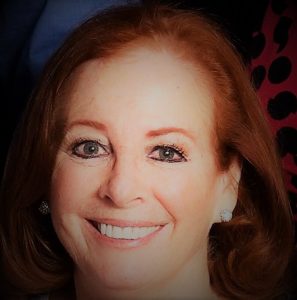
A few years after we were married, Dave and I had a discussion about what makes each other happy. We began by sharing what we thought the other person wanted. My answer was easy. Since Dave eats tacos about 300 days a year, that was the way to his heart.
Not even close. “Patty, that doesn’t make me happy. What makes me happy is when you show me affection. Hold my hand. Hug me. Kiss me for no reason.”
What??? All these years, thinking I was earning wife-points with my Mexican cooking, my focus had been on making sure we never were without chopped lettuce, diced tomatoes, spicy hamburger, grated cheese, tortillas and three kinds of taco sauce? And Dave would rather have had a hug? I asked Dave what he thought I needed from him, a no-brainer in his opinion. It was a squeeze of his hand while we were watching television or a morning kiss to start my day or a long embrace for no reason whatsoever.
WRONG! My husband knew nothing about my love language. And although those were wonderful demonstrations of Dave’s love for me, there were other things that would have, in my opinion, solidified his marriage vows: lend me a hand to rake leaves or weed-eat; offer to come alongside with meal preparation when guests were coming to visit; help write Christmas cards or thank-you notes; you know, basically, be my assistant when needed. (And yes, it does appear that one of us was requiring a lot more than the other.)
You see, we all are wired differently; Dave and I had assumed that what we desired was what our spouse desired. Do you see the problem here? All we needed to do was to ask instead of assume. That conversation, years ago, was central to my husband and me understanding each other better. But it did more than that. Over the years, it has pushed me to question what God’s love language might be. What does He want from me that I withhold because I don’t think it’s all that important? After all, He abounds in grace, so He will be happy with whatever I think is important, right?
I don’t think so. God wants my attitude to reflect the joy He has offered to me. He wants me to be selfless and not selfish. He wants me to be grateful and not grumble. When I rake or am working in the kitchen, God wants me to be thankful to Him that I have arms and legs and a yard and an oven and a clear-thinking mind (well, relatively speaking). He wants me to appreciate the heat pad that I will use on every part of my body the day after raking or weed-eating. He wants me to enjoy autumn and friends and a Christmas season that reflects the Gift He has given in His son. He wants me to be grateful for a husband who has stood beside me for 46 years. He wants me to recognize what a good, good Father He is.
During this Christmas season, I pray we all choose to understand God’s “love language” in a way that reflects what He has done in our lives instead of offering only what is convenient for us.
Merry Christmas, and may your 2020 be filled with opportunities to be the love language that God is to you.